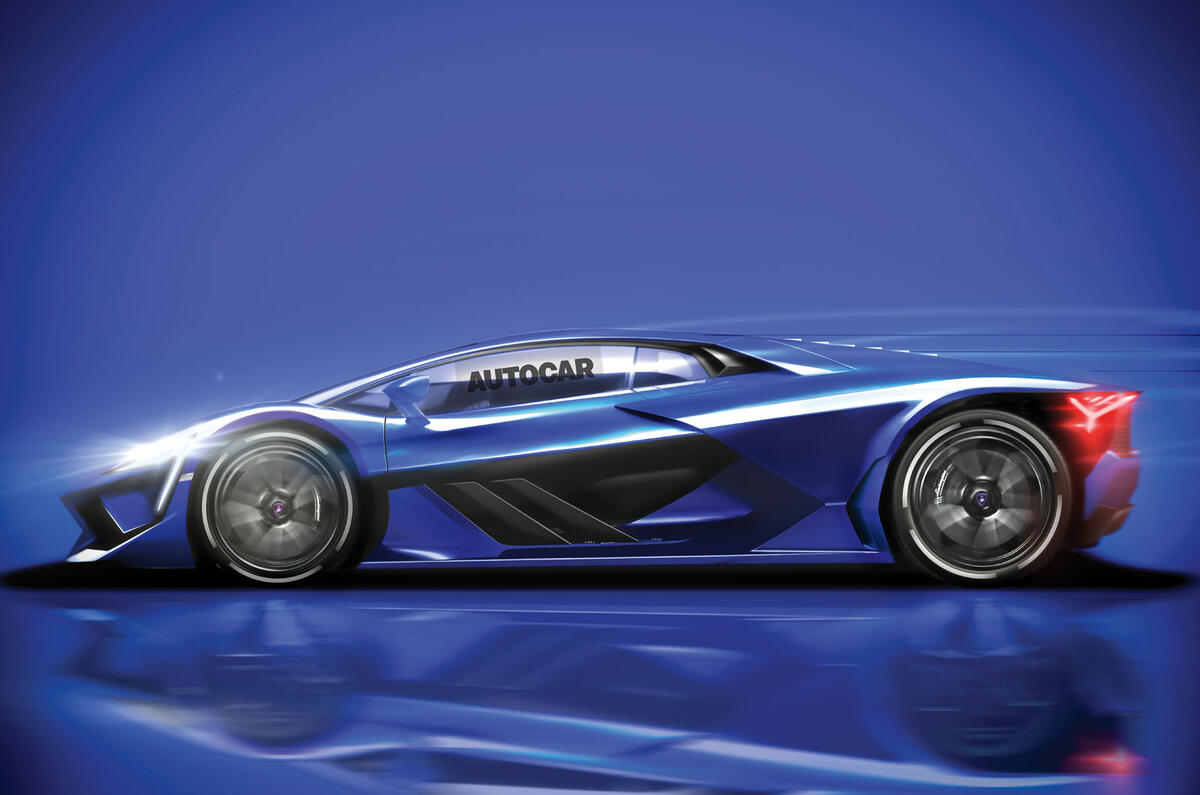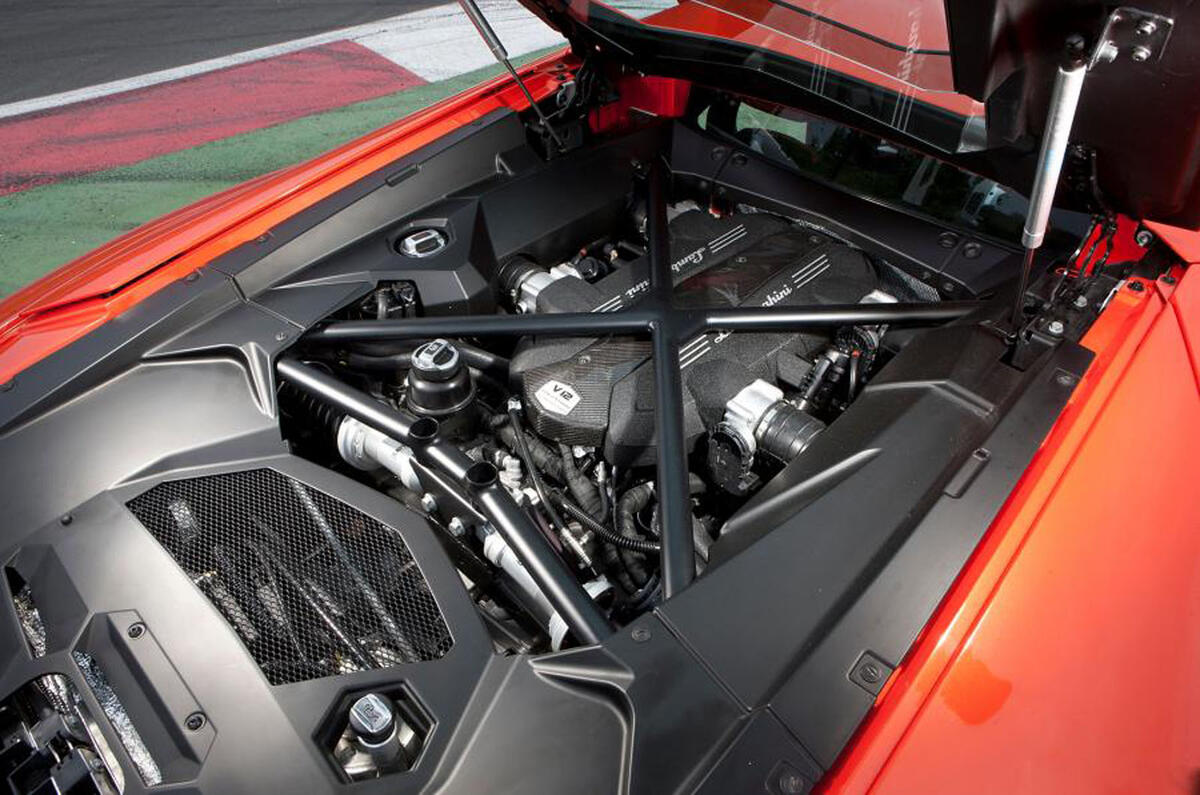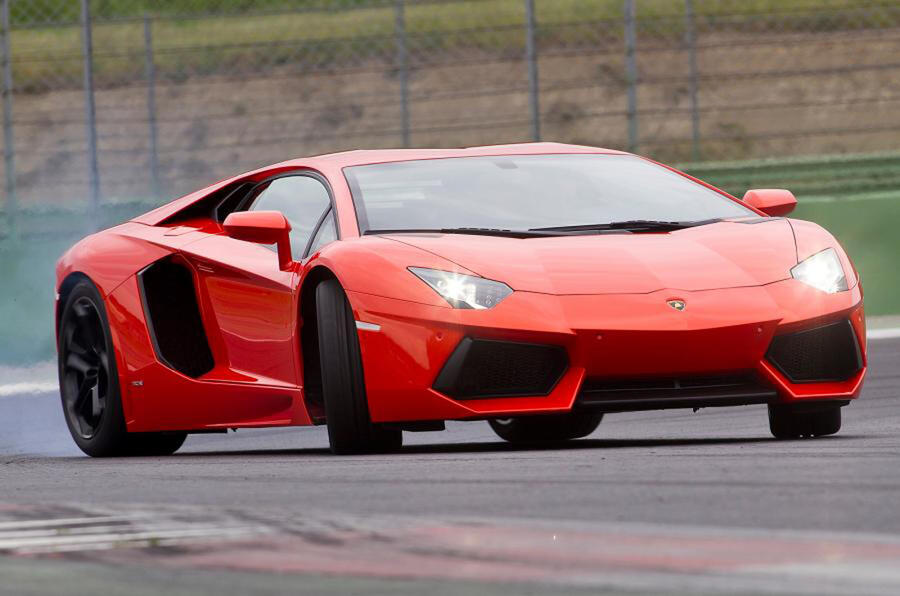Lamborghini is readying a replacement for the Lamborghini Aventador for 2020 – and is set to adopt a hybridised version of its iconic V12 engine. It will be one of two 2020 series-production Lamborghinis to use electrification, along with a plug-in hybrid Lamborghini Urus SUV, and will be previewed by a low-volume, £2 million hypercar due to be revealed next year.
Codenamed LB48H, the limited-run hypercar was shown to prospective buyers in model form in June. The biggest news is the powertrain, with the car serving as a prelude for the next Aventador’s set-up by featuring a naturally aspirated V12 engine mated to an electric motor to boost performance and efficiency.
Revealed: Lamborghini uncovers 808bhp Sian as first hybrid model
At the launch of the Aventador SVJ earlier this year, chief technical officer Maurizio Reggiani threw more light on what to expect when the new car arrives in 2020.
Hybridisation has come from necessity, rather than choice. “The law will determine what level of pure-electric driving you need,” Reggiani told Autocar. “There are several discussions ongoing. Some say 20km, some say 30km and China is suggesting 50km – and normally we only develop one car worldwide.”
Using a hybrid system will add weight, with Reggiani estimating that even a lightweight solution will add 150kg to 200kg. Even with savings made elsewhere, that means the next-generation car is likely to be heavier.

“I always say that I prefer to have 10kg less rather than 1hp more, even if the power-to-weight ratio remains the same,” Reggiani said. “But I imagine the starting point of the car will be heavier, no doubt. What will be the end game? We don’t know. Improvements will happen.”


















Join the debate
Add your comment
Question for the Forum
With VW group announcing no more internal combustion engines after 2030 (only 11 years away) and no doubt the rest following suite, we may soon be witnessing the Zenith of the internal combustion engine drivers cars. Whilst the hybrids and electrics will inevitably be of a higher performance, will the last of the internal combustion engine cars beome ultra desirable and therefore valuable? Your thoughts......
Amazed
Photos looks great! I am glad that there will a hybrid. Guess in the future I could buy something on https://best-vegas.com/cirque-du-soleil/michael-jackson-one-by-cirque-du-soleil/and then drive to my destination
/*-->*/
Is it time....?
Yes, yes I think it is, sticking with what will be known as old tech will make Lamborghini a second choice because EV Supercars will just destroy it performance wise, instant torque, range?....who cares?!, just plug in charge it up and go!
This certainly wouldn't be
This certainly wouldn't be second choice for me, Peter. Are people really queing up to buy fast EV's?
If performance was all that mattered, motorbikes have always been available to humiliate cars, but that wasn't the point for most. And if you get a kick out of top speed stats, book a short flight with Ryan Air for £20. You greatly underestimate the attraction of noise and drama.
And then there is the dead weight which has to be carried around when you have flattened the battery. Why did McLaren ditch the hybrid stuff on the P1 for the (tragically hideous) Senna?
Personally, I'd love the replacement for the Aventador, but only if I could pay someone to remove all the electic baggage. And stick in a proper gearbox whilst they are at it.